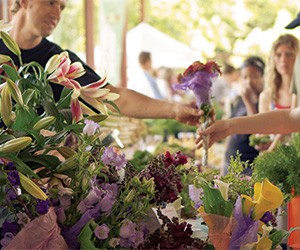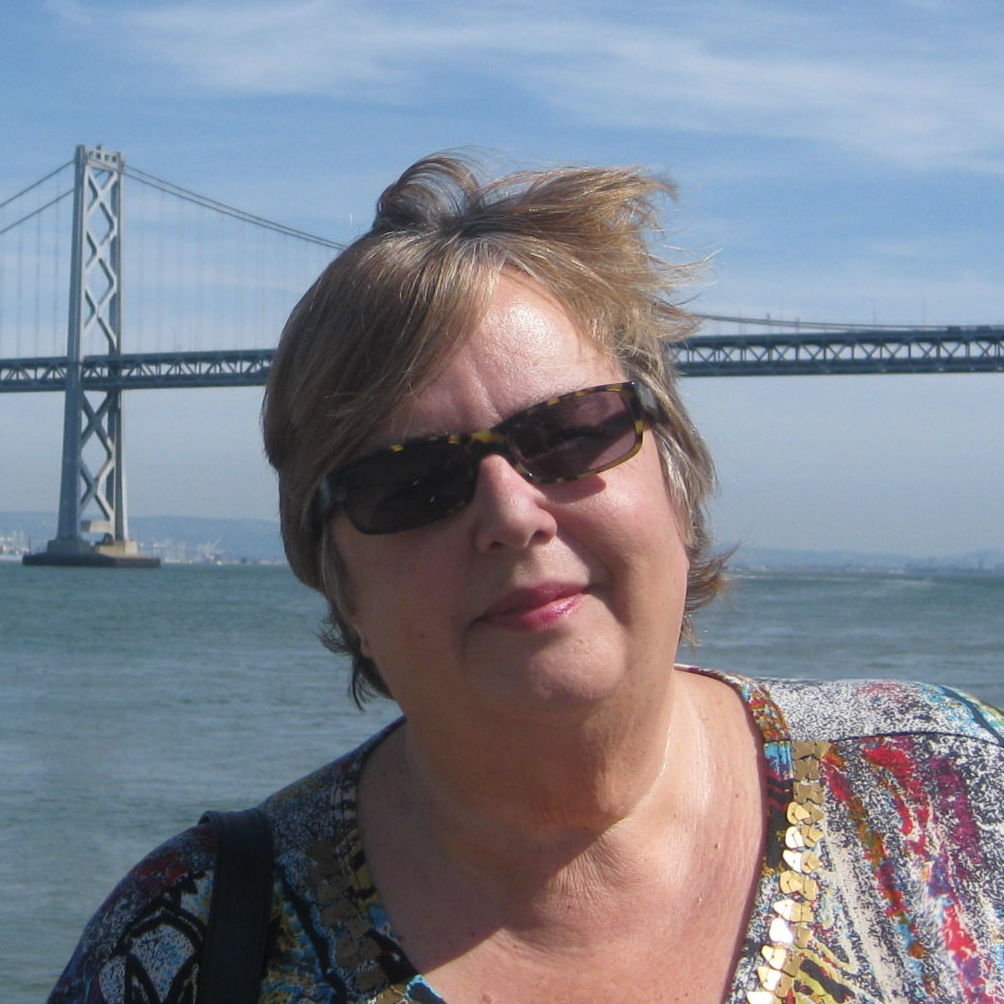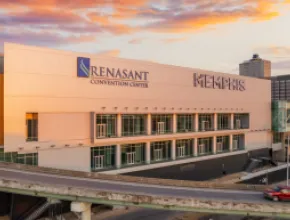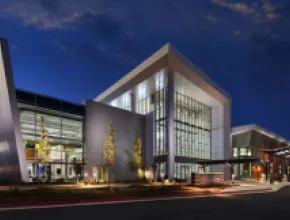Home to prestigious universities and the Research Triangle Park, the region that encompasses Raleigh, Durham and Chapel Hill is on the cutting edge of new technology and research development. At the same time, the Triangle cities are rich in museums and historic venues that leave no doubt that the area has a long tradition of innovation and creativity.
“We’re a smart destination any way you look at it,” says Ryan Smith, director of communications for the Raleigh CVB. “In fact, we’re often called the ‘Smithsonian of the South’ because of the quality of our museums and world-class collections.”
Raleigh
Many of Raleigh’s most versatile venues showcasing its heritage and commitment to historic preservation are located downtown, within walking distance of major hotels and the Raleigh Convention Center. Among them is the North Carolina Museum of History, which offers a variety of event spaces, including a spacious lobby that can host receptions for up to 500 people, a more intimate space with glass walls overlooking Bicentennial Plaza and a 307-seat auditorium with state-of-the-art audiovisual capability.
“The museum is a wonderful introduction to Raleigh and North Carolina history, with a lot of new technology that makes the exhibits very engaging,” says Jennifer Johnson, president of the Johnson Meeting Group, a local DMC. “You can do after-hours tours and they can bring in docents.”
PageBreak
The museum’s permanent exhibit is The Story of North Carolina, which chronicles the state’s history during eras that include Native American and European settlement, piracy, early 1800s farm life, the Civil War, the rise of industry, the two World Wars and the civil rights movement. Visitors can watch the clattering mechanized weaving process in a room from an from an early 20th century textile mill and explore a full-size replica of the flying machine launched by the Wright brothers at Kitty Hawk in 1903.
A prime example of the historic preservation that has revitalized downtown Raleigh is the Merrimon-Wynne House, a Victorian mansion and grounds recently restored to its 1876 grandeur. The house and grounds on Blount Street are available for receptions for up to 200 people.
“This is one of several beautiful old homes on Blount Street that are being restored for use as businesses,” Smith says. “It’s not far from Historic Oakwood, a neighborhood of Victorian homes that offers candlelight tours during the holidays and garden tours in the spring.”
Raleigh’s oldest house on its original site is Haywood Hall and Gardens, a 1799 Federal-style home surrounded by gardens of azaleas, roses and magnolias. Located just off Blount Street and near the Governors Mansion, the house accommodates indoor and outdoor events for up to 300 people.
“It’s a beautiful, relaxing space with a residential feel that works well for both association and corporate events,” Johnson says.
Another historic downtown building converted to an event venue is All Saints Chapel, a Victorian-era church that was saved from demolition before undergoing two years of restoration. The chapel’s interior of stained glass and wooden beams is a dramatic setting for banquets for up to 160 people and theater-style sessions for up to 200.
Durham
PageBreak
In Durham, the campus of Duke University offers several historic venues, including the dazzling Sarah P. Duke Gardens, considered one of the top 10 public gardens in the U.S. Dating from 1934, the 55-acre spread features everything from native flora of the Southeastern U.S. to exotic plants from eastern Asia. The new Charlotte Brody Discovery Garden provides workshops on organic gardening and other horticultural topics.
Both the gardens and the Kirby Horton Reception Hall, a post-and-beam structure with floor-to-ceiling windows overlooking the gardens, are available for events.
“You can use the reception hall for a meeting and then have a meal outside in the gardens,” Johnson says. “It’s a beautiful venue at any time of year, even in winter because of all the evergreens.”
Another legacy of the Duke family in Durham is the Duke Homestead State Historic Site, where Washington Duke, whose sons founded the American Tobacco Co., started tobacco farming in the 19th century. Available for indoor and outdoor events, the seven-acre site includes the original 1852 homestead, a tobacco curing barn and a museum with exhibits on the history of the Duke family, Durham and the North Carolina tobacco industry.
Chapel Hill
Home to the University of North Carolina (UNC) and close to Research Triangle Park, Chapel Hill attracts meetings that are drawn not only to its research facilities but its classic college town atmosphere, according to Linda Ekeland, director of sales for the Chapel Hill/Orange County Visitors Bureau.
“We have a great main street and few of our restaurants are chains,” Ekeland says.
The college town vibe is especially evident at the Carolina Inn, which is considered the “front porch” of the UNC campus and is steeped in Tar Heel history. A new walking tour brochure of the inn guides guests to such points as framed original copies of UNC fight song sheet music, historic photographs of the campus and artwork such as an oil painting of the inn by alumnus and Pulitzer Prize-winning cartoonist Jeff MacNelly. The colonial-style inn, which opened in 1924, offers 185 guest rooms, a fine dining restaurant and 13,000 square feet of function space in meeting rooms named for iconic UNC landmarks and alumni.
“The inn has recently completed a major renovation and has been redecorated beautifully,” Ekeland says. “It’s a very special place for small and midsize meetings.”
Another venue with a historic bent is the Horace Williams House, which is owned by the Preservation Society of Chapel Hill. The gracious white clapboard house was built in 1854 by Benjamin Hedrick, a UNC professor of agricultural chemistry. Available for events for up to 150 people, the house is also the frequent scene of art exhibits, concerts and lectures.
“It’s filled with artwork and antique furniture,” Ekeland says. “You can do events inside the house or tent the grounds for a larger event. The Preservation Society also offers walking tours of historic Chapel Hill.”







